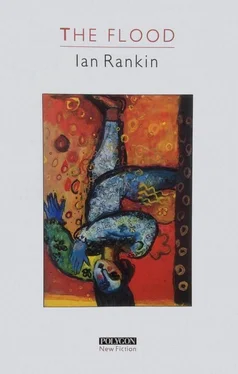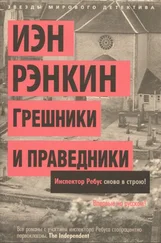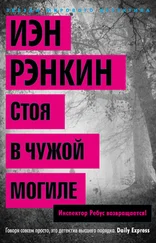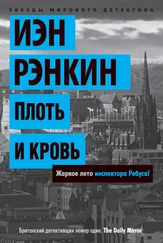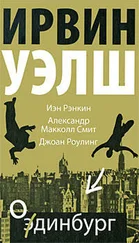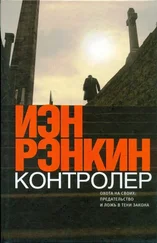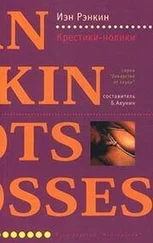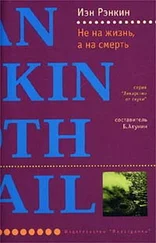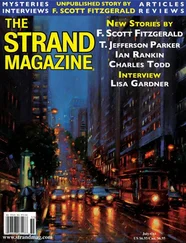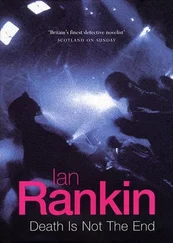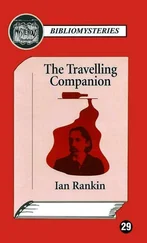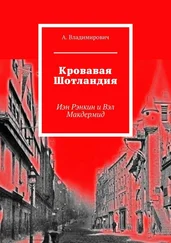The Church mixed uneasily with some of the ideas handed down to her by her mother and her mother’s mother, but she held both sets of beliefs dearly and would part with neither. Sandy had no religious sense at all. It saddened her. He had reneged on going to church when he was twelve and had not gone since except to weddings and funerals. When Mary looked around her on a Sunday she could see why. The pews were quarter full, and then with predominantly elderly people: the women in their ageing Sunday coats and 1950s hats; the men mouthing the hymns while their wives sang shakily. It was a drab spectacle. There were only a few young people dotted around. The young men sang lustily. Their cheeks were ruddy with righteousness. Some of them would glance at her bitterly. Now Mr Davidson was dead. Who would replace him? Someone younger, certainly, and someone who, being young, would please the older churchgoers less. If the congregation grew any smaller it would be embarrassing.
It was a good day for a walk, but Mary knew that Sandy would not go with her, and a walk by herself was a lonely thing. Andy had promised to drop by in the afternoon, school drawing to a close for the summer, and take her out. Perhaps he could be persuaded to go walking. They would have to drive some distance from the town before it would be possible for them to walk together without embarrassment, without the whispers and stares from the women in their long old-fashioned coats, bags hanging heavily from their arms. They would have to drive into the country, way out by Kinross. A car made all things possible, even escape. She would take a bath after lunch in case she had been sweating. The lavatory flushed upstairs. The pipes gurgled and the liquid ran into the underground system of sewers. There were countries worse than Scotland. If only lives could be made better through decent plumbing and housing. But life wasn’t quite that simple, nor was it as concrete. Dig beneath the surface and you would not find a system of pipes and taps to be switched on and off; you would find, rather, wild depths, guilty feelings, an ever-changing geography. Mary shivered a little as a wind blew across her from the garden. Goosebumps appeared on her bare arms. She heard Sandy padding about upstairs and decided to go in herself.
‘What do you fancy for lunch, Sandy? There’s some cold meat and salad. Is that okay?’ This she shouted from the bottom of the stairwell. She heard his reply from the distance of his room.
‘Fine, Mum. Whatever you like.’ She knew from the tone that he felt she was intruding again, calling on him merely as a pretext to find out what he was up to. She did not care what he was up to.
‘I’ll leave everything on the table then, and you can help yourself when you feel hungry.’ She waited. ‘Okay?’
‘Fine, Mum.’
If only she could understand him. If only he would open himself to her. Tom said in his letters that it was an adolescent thing. Everybody went through it. But who was Tom to know about that? He had never had to bring up a child.
‘Have you written that letter to Uncle Tom yet, Sandy?’
‘Not yet,’ he answered impatiently. ‘I’ll do it this afternoon.’ Sandy had decided that he did not want to go to Canada, not this year. His mother had been mildly surprised by his rapid, unshakeable decision. ‘Maybe next year,’ he had said at the dinner table that evening. She had not pressed him for a reason, but he had given her one anyway. ‘My pals,’ he had said, ‘this is maybe my last chance to see them before they all go off to get jobs and get married. They’re all talking about moving away, so I’d like to spend the summer just seeing them.’ His mother had nodded in silence and sipped her tea. Rian, he had been thinking, I’m not giving up Rian. Not when I can feel that she’s so close. Maybe one day he could take her to Canada. Besides, it was true that he wanted to see Mark, Clark and Colin as much as possible. They had been good friends, and they would soon be leaving. The summer holiday promised lots of adventures together. Kirkcaldy. Edinburgh. Football. Fishing. Rian. It would be a great summer.
Sandy sat in his bedroom and thought about the minister dying and whether there was a God or not. He thought that it must be good to die believing that there was something after death. To have no belief was as scary a thing as he could think of. He considered the possibility of an afterlife. The idea of Heaven, of pearly gates and angels with harps, was unthinkable. But then what if that idea were merely a simplification, an analogy, because the idea of an afterlife proper was too difficult to explain? That might make sense. Sandy did not want to die, but death was around him at every moment. A vague friend had died in a car crash ten months before. Sometimes his sides ached for no reason and he lay in bed thinking that he was about to die. He did not want to go to church and pray and sing hymns, but it would be good to believe in life after death, life of any kind. The old minister had seemed a happy man. He had spoken with Sandy whenever he had met him. He had shaken his hand in a firm, dry grip, had patted his shoulder like Mr Patterson and had offered words of advice on things Sandy at the time had thought the man could know nothing of, like growing up, and being a scapegoat, and the like. Yet his smile had always been sincere and only a little patronising. What if he had known things Sandy had not? What if he knew rather than simply believed? How could Sandy find out? There was no way. The old minister was dead. Then he had an idea. He knelt beside his bed, having first wedged a chair against the bedroom door, and began to whisper.
‘Oh Lord, if there is an afterlife, if there is something after we die, then let the minister, Mr Davidson, talk to me. Let him come to me when I’m dreaming, or better still while I’m wide awake, and let him show me that there’s an afterlife. If you do this, God, then I will believe in you and will go to church with my mother and suchlike. Amen.’ He opened his eyes. He was a sinner, so maybe nothing would happen. But then, he thought, all the more reason for God to want to save him.
He would not visit Rian that evening and so would show his sincerity to any God that might be around. He reached under his bed, beneath the carpet, and pulled out one of his small collection of sex magazines. Deliberately, he tore it in half, then in half again. He rose from his floor and gazed out of the window. He saw a car pass. He saw a lamp-post. He saw the wasteland that stretched to the site of the old mine. He saw nothing that resembled God, and nothing that looked as if any hand of God had ever passed over it. He frowned. Was it all a trick? Should he go to the mansion anyway? No, he would stay put. He wondered if his mother would like to go for a walk up Craigie Hill. He left his room and started downstairs.
The alarm woke Sandy at seven thirty the next morning. He thrust a hand from beneath the bedclothes and brought the clock into bed with him, fumbling to switch the bloody thing off. He stuffed it under his pillow and let it run down to a mechanical nothingness, then he drifted back into his dream. It was not a dream about Mr Davidson. It was a dream about Rian, a lengthy narrative dream. He was nearly sound asleep when he realised that this was the day they were all going to Kirkcaldy. He threw back the covers and, peeling open his eyes, swivelled out of bed.
Andy Wallace washed his car. His neighbours were just beginning to leave their homes for Saturday shopping trips. The sun was cool, but the sky promised a good day. Andy soaped the car’s roof. Blimps of paint showed here and there where the rust was aching to break through. The car was a wreck, but it was all he could afford. If he coaxed it, and spoke nicely to it, it usually choked itself into some kind of life. His next-door neighbour smiled as she passed, an empty canvas shopping-bag tied to each of her hands. Her small son walked disconsolately a few feet behind her.
Читать дальше
